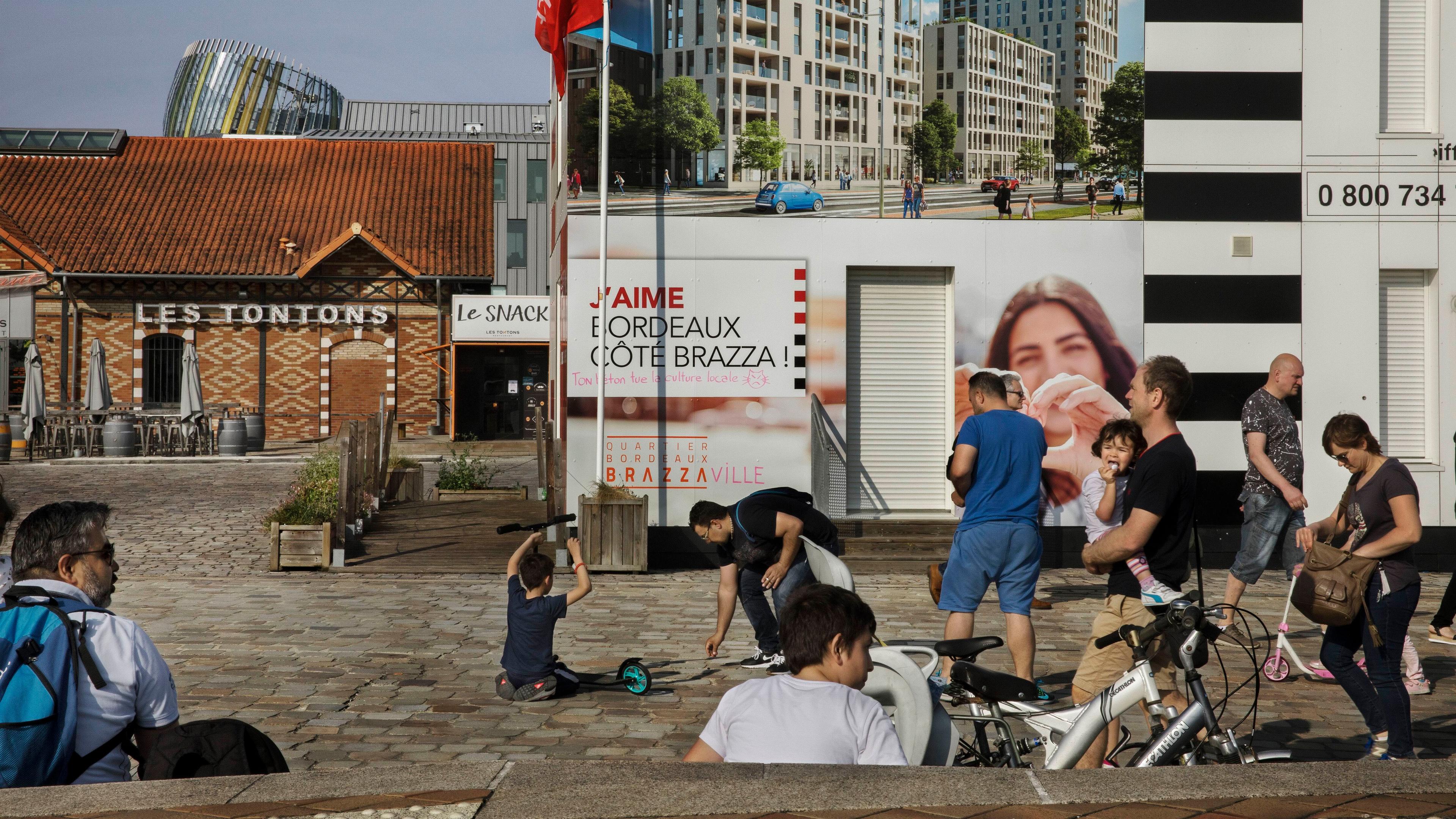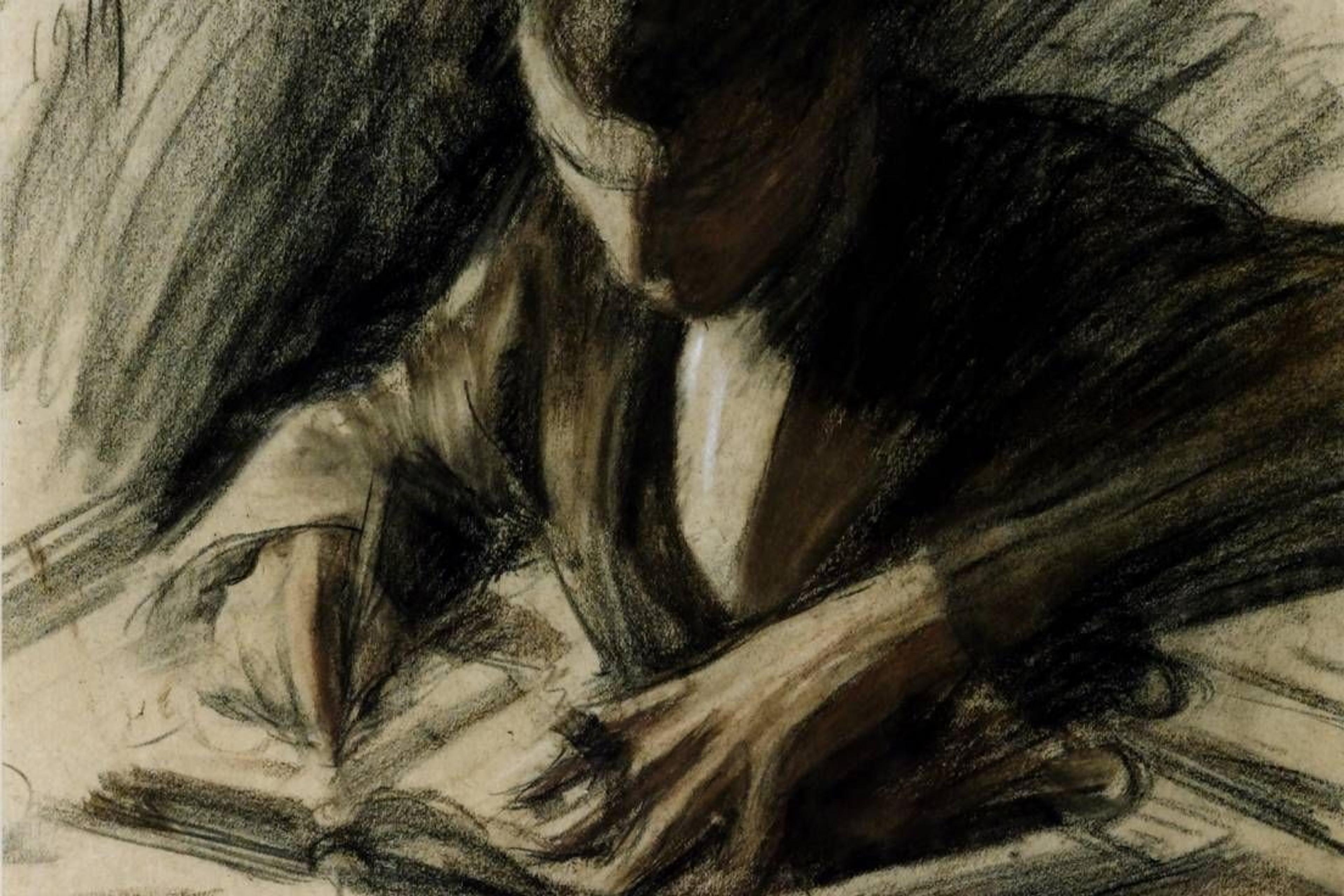Narratives are everywhere, and the need to construct and share them is almost inescapable. ‘A man is always a teller of tales,’ wrote Jean-Paul Sartre in his novel Nausea (1938), ‘he lives surrounded by his stories and the stories of others, he sees everything that happens to him through them; and he tries to live his own life as if he were telling a story.’
We rely on narratives because they help us understand the world. They make life more meaningful. According to Sartre, to turn the most banal series of events into an adventure, you simply ‘begin to recount it’. However, telling a story is not just a powerful creative act. Some philosophers think that narratives are fundamental to our experiences. Alasdair MacIntyre believes we can understand our actions and those of others only as part of a narrative life. And Peter Goldie argues that our very lives ‘have narrative structure’ – it is only by grappling with this structure that we can understand our emotions and those of others. This suggests that narratives play central, possibly fundamental, roles in our lives. But as Sartre warns in Nausea: ‘everything changes when you tell about life.’
In some cases, narratives can hold us back by limiting our thinking. In other cases, they may diminish our ability to live freely. They also give us the illusion that the world is ordered, logical, and difficult to change, reducing the real complexity of life. They can even become dangerous when they persuade us of a false and harmful world view. Perhaps we shouldn’t be too eager to live our lives as if we were ‘telling a story’. The question is: what other options do we have?
Narratives work by organising our experiences by connecting them into sequences, which give our lives meaning. The ability to form these sequences is something we learn very young. As the educator Carol Fox found during research in the 1990s, stories begin shaping us from childhood. Fox found that reading to children at home gives them tacit knowledge of linguistic and narrative structures, which they incorporate into their own spoken stories. Her research showed that children as young as three used stories to experiment with language as they made sense of the world. The older we get, the more we keep playing – and the more we keep relying on narratives.
As adults, we adopt different roles, including friend, lover, employee, parent, carer and more. The way we understand these roles is often framed in terms of expected behaviour. For example, we have a narrative grasp of what a ‘friend’ is, and we judge ourselves and others by how well they fit that narrative – sometimes favourably, sometimes less so.
We can also get these scripts wrong, and may need help altering them
So, why is this a problem? One issue is complexity. Seeing yourself as the main character in a story can overly simplify the fullness of life. Think of the way in which people talk about their ‘journey’ through life. Through this narrative, certain events become more significant while others are overlooked, and random events can be reframed as being part of some grand plan. Yet viewing our lives in such a narrow way hinders our ability to understand the complex behaviour of others and ourselves. For example, a child that accepts the narrative of being ‘naughty’ may incorrectly frame their behaviour as bad, rather than as an expression of their unmet needs. Stories can change us by locking us into ways of acting, thinking, and feeling.
In the 1970s, a recognition of this limitation gave rise to narrative therapy. Rather than seeing people as illogical or overly emotional, this new form of psychotherapy focused on the role of narratives in a person’s life. As the therapist Martin Payne explains in his book Narrative Therapy (2000), the approach allows ‘richer, combined narratives to emerge from disparate descriptions of experience’. A new narrative can be incredibly powerful for someone who is unaware of how their established stories are obscuring other ways of understanding their life.
The stories that might need changing are not only grand, but also minor, such as the ‘scripts’ that we rely on throughout our lives. These scripts can become habitual patterns of thinking, influencing our interpretations of family members, friends or colleagues. As narrative therapy shows, we can also get these scripts wrong, and may need help altering them.
Though narrative therapy can be effective, it is unable to help people understand what creates and shapes their narratives. It merely helps them to choose between different narratives or construct new stories about themselves and the world. Swapping one ‘script’ for another doesn’t help someone see the full range of possibilities that lie in front of them, including what it might mean to reject a narrative altogether.
The possibility of rejecting a narrative can be found in Sartre’s Being and Nothingness (1943) where he describes a café waiter. According to Sartre, the waiter has adopted a particular narrative that shapes his identity and governs how he ought to behave. Being wedded to a narrative view of the self can lead to living in what Sartre calls ‘bad faith’ – that is, living without being aware of one’s responsibility or in control of one’s own destiny:
All his behaviour seems to us a game. He applies himself to chaining his movements as if they were mechanisms, the one regulating the other; his gestures and even his voice seem to be mechanisms; he gives himself the quickness and pitiless rapidity of things. He is playing, he is amusing himself. But what is he playing? We need not watch long before we can explain it: he is playing at being a waiter in a café. There is nothing there to surprise us.
In other words, he is playing the role of a waiter in a similar manner to an actor on stage who follows a script. As a result of embodying the waiter-narrative, he lives inauthentically because he can only act in a way that fits with the role. The narrative he follows gives him a limited understanding of himself, determining his actions and preventing him from taking ownership of his life. But what would happen if the waiter rejected that narrative identity? For Sartre, this would be a step towards true selfhood, or an authentic existence – what he called ‘being’ – rather than merely playing a role.
Our core beliefs and values shape the way we see things and what we take to be important
So, what does it mean to reject a narrative? Living in a non-narrative way means rejecting a particular identity, and instead seeing life and meaning as a set of open choices. For the waiter, rejecting his narrative identity would mean acting in a way that reflects his choices and sense of self, not just the story he tells about himself.
To understand what is involved in rejecting a narrative, it is important to remember that narratives do not exist outside of people’s minds. The stories we tell ourselves are not out there in the world. They are tools that mediate our relationships with the world. Though they relate to facts, and real events, they are not factual. In fact, they are neither true nor false. Instead, stories help us make sense of things. So, if we rejected the power of narratives to sequence events in our lives, how else would we organise our thoughts about the world?
Think of the ways that perspectives organise experiences differently. By ‘perspective’ I mean something more complex than ‘point of view’. I’m referring to the way we engage with the world from a particular position or orientation that draws our attention to aspects of experience, like how our visual ‘perspective’ allows bright colours to show up more easily than dull ones. Perspectives are shaped by our place in the world, our beliefs, values and what we think matters. As the philosopher Elisabeth Camp explains, a perspective ‘helps us to do things with the thoughts we have: to make quick judgments based on what’s most important, to grasp intuitive connections, and to respond emotionally, among other things.’ Through perspective, some features of our experiences ‘stick out in our minds while others fade into the background.’
Perspectives, then, determine the narratives we adopt. In other words, our core beliefs and values shape the way we see things and what we take to be important in our experiences. It is our perspectives that generate our narratives. Perspective also explains why our narratives can differ so radically from those of other people, even when we experience the same events. But once we understand these perspectives, we can see how flexible our narratives can truly become. Perspectives, it turns out, don’t have a linear, ordered structure. We can’t think of them in terms of sequences of events, like stories. In some ways, perspectives are better represented by the non-linearity of poetry.
Poems, particularly lyric poems, are inherently perspectival; they unify words, images, thoughts and feelings to express value. Poetry captures a way of seeing and feeling, not just a sequence of events.
By loosening the grip that stories hold over our lives, we can begin opening up to other possibilities
Think of ‘Thirteen Ways of Looking at a Blackbird ’ (1917) by the American poet Wallace Stevens. Each stanza focuses on a different way of looking at a blackbird and its relationship to the self:
Icicles filled the long window
With barbaric glass.
The shadow of the blackbird
Crossed it, to and fro.
The mood
Traced in the shadow
An indecipherable cause.
In Stevens’s poem, he brings experiences together without explaining how they are related – they are connected only by his perspective. Likewise, understanding ourselves in a non-linear way means seeing how we relate to a complex and chaotic world in the present moment. Within that moment, we find significance without needing an ordered pattern.
And so, instead of just changing our narratives, we should learn to understand the perspectives that shape them. When we focus on our own stories, we live life as we already know it, but by loosening the grip that stories hold over our lives – by focusing on the perspectives of ourselves and others – we can begin opening ourselves up to other possibilities. We can adopt new orientations, find significance in new places, and even move toward the exciting unpredictability of shared perspectives.
As Sartre warned, everything changes when you tell a story. Narratives limit our potential. Though we are complex beings, living in a chaotic universe, our stories create the illusion that our lives are ordered, logical and complete.
We might never fully escape the narratives that surround us, but we can learn to change the perspectives behind them. And so, we are never bound by stories, only by our ability to understand how our beliefs and values shape the way we perceive and engage with the world. We don’t need better narratives; we need to expand and refine our perspectives.








